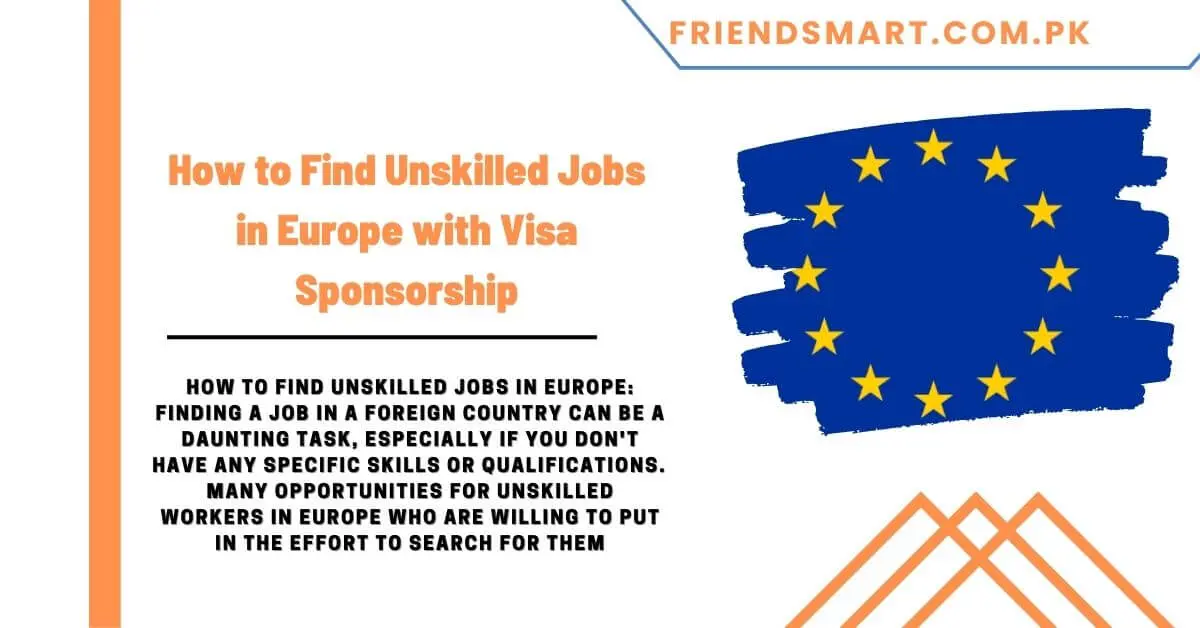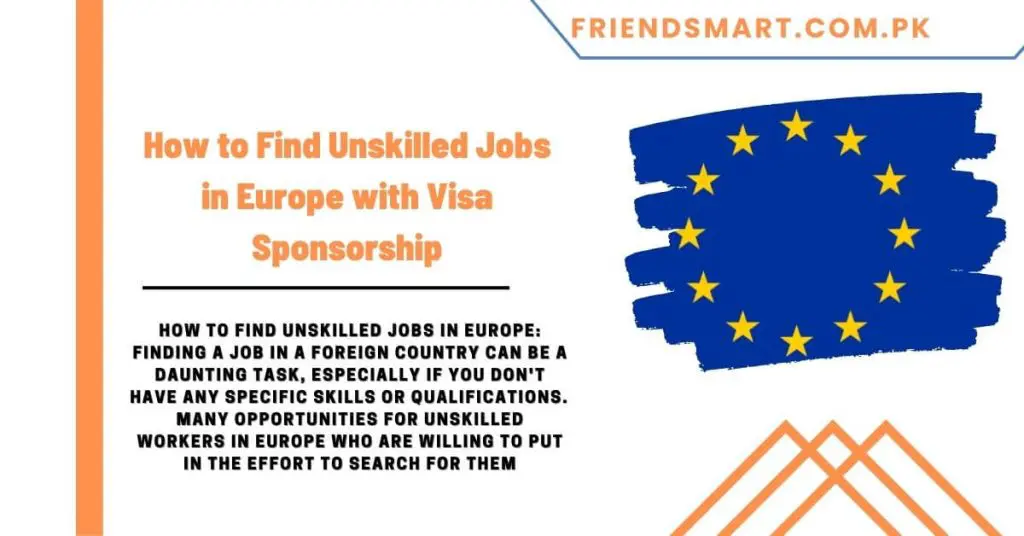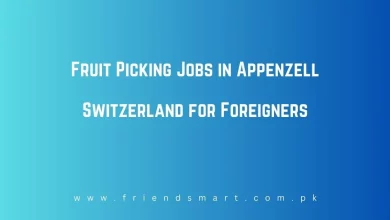How to Find Unskilled Jobs in Europe with Visa Sponsorship

Finding a job in a foreign country can be a daunting task, especially if you don’t have any specific skills or qualifications. However, there are many opportunities for unskilled workers in Europe who are willing to put in the effort to search for them. This article will provide you with a step-by-step guide on how to find unskilled jobs in Europe with visa sponsorship.
Introduction
Unskilled jobs are ones that need little to no formal education or training. These vocations frequently require manual labor, such as construction, warehousing, or factory work. Many European businesses, including agriculture, hospitality, and healthcare, rely on unskilled labor to fill labour gaps. When a company agrees to sponsor an employee’s visa and work permit, the employee can legally work in their nation.
How to Find Unskilled Jobs in Europe with Visa Sponsorship
Research the Job Market
The first step in locating unskilled jobs in Europe is to investigate the job market in the country in which you wish to work. Look for industries that have a strong need for unskilled people and are facing labour shortages. Unskilled job prospects abound in countries such as Germany, Switzerland, and the United Kingdom in industries such as hospitality, construction, and healthcare.

Consider Your Language Skills
It is critical to examine your language skills before applying for jobs. If you do not speak the local language fluently, your work possibilities may be limited. Many jobs, particularly in the tourism business, may, nevertheless, need staff to speak many languages, including English.
Look for Jobs in Specific Industries
When looking for unskilled jobs, it’s helpful to narrow your search to industries with strong labor needs. Agriculture, construction, hospitality, and healthcare are just a few industries that frequently use unskilled laborers.
Utilize Online Job Boards
In Europe, there are numerous online job sites that specialize in posting jobs for unskilled people. Employers in numerous industries list job openings on websites such as Indeed, Monster, and Glassdoor. You can also look for employment sites that specialize in the industry you want to work in.
Connect with Recruitment Agencies
Recruitment agencies can be an excellent source of unskilled jobs in Europe. They have direct contact with employers and may assist you in locating career opportunities that fit your abilities and expertise. Visa applications and other administrative tasks may also be handled by recruitment companies.
Networking and Personal Connections
When looking for jobs in Europe, networking and personal contacts can be extremely beneficial. Ask relatives, family, and acquaintances who live or work in Europe whether they are aware of any job openings. You can also participate in online communities and social media groups related to your industry or job.
Job Fairs and Trade Shows
Attending job fairs and trade events might help you interact with employers and learn about available positions. Annual job fairs and trade events are held in many industries where firms actively seek new staff.
Prepare a Strong Resume and Cover Letter
When applying for unskilled employment in Europe, a solid CV and cover letter can make a major difference. Highlight your previous work experience, relevant abilities, and qualifications.
your excitement for the job. Personalize your CV and cover letter for each job application by tailoring it to the job’s specific requirements.
Applying for Jobs
When applying for unskilled jobs in Europe, make sure you properly follow the employer’s guidelines. Some employers may need you to apply online, but others may request that you submit your application via email. Include all relevant documents, including your résumé, cover letter, and any certificates or references.
The Interview Process
If your application is accepted, you will almost certainly be contacted for an interview. The interview may be conducted over the phone, through video call, or in person, depending on the company. Research the firm and the employment requirements to prepare for the interview. Prepare to discuss your talents and expertise in relation to the position.
Negotiating Job Offers and Contracts
Once you’ve accepted a job offer, you should thoroughly read the contract’s terms and conditions. If necessary, negotiate, and ensure that you grasp all of the advantages, like healthcare, vacation time, and retirement plans. Before accepting the employment offer, make sure you have all of your questions answered.
Obtaining a Visa and Work Permit
To legally work in Europe if you are not a citizen of an EU country, you will need a visa and a work permit. Typically, your employer will sponsor your visa and work permit, but you must supply papers and finish the application procedure. The rules and process for acquiring a visa and work permit differ by nation and job type.
Arriving and Settling In
It’s time to start planning your move to Europe now that you’ve gotten your visa and work permit. Make arrangements for lodging, transportation, and other necessities. Prepare for culture shock and spend time learning about your new country’s customs and traditions. Make new friends by reaching out to ex-pat groups.
Conclusion
It may appear difficult to find unskilled jobs in Europe with visa sponsorship, but with the appropriate approach and preparation, it is possible to acquire a job and begin a new life in Europe. Investigate the job market, concentrate on certain industries, use online job boards and recruiting firms, and capitalize on personal relationships. Prepare an effective résumé and cover letter, and be prepared to negotiate job offers and contracts. Obtain a visa and a work permit, then settle into your new European home.
Frequently Asked Questions
-
Which European country is best for unskilled workers?
Canada.
Norway.
Portugal.
Sweden.
Switzerland. -
Which country in Europe is easiest to get a job?
Germany.
Spain.
Norway.
Switzerland.



